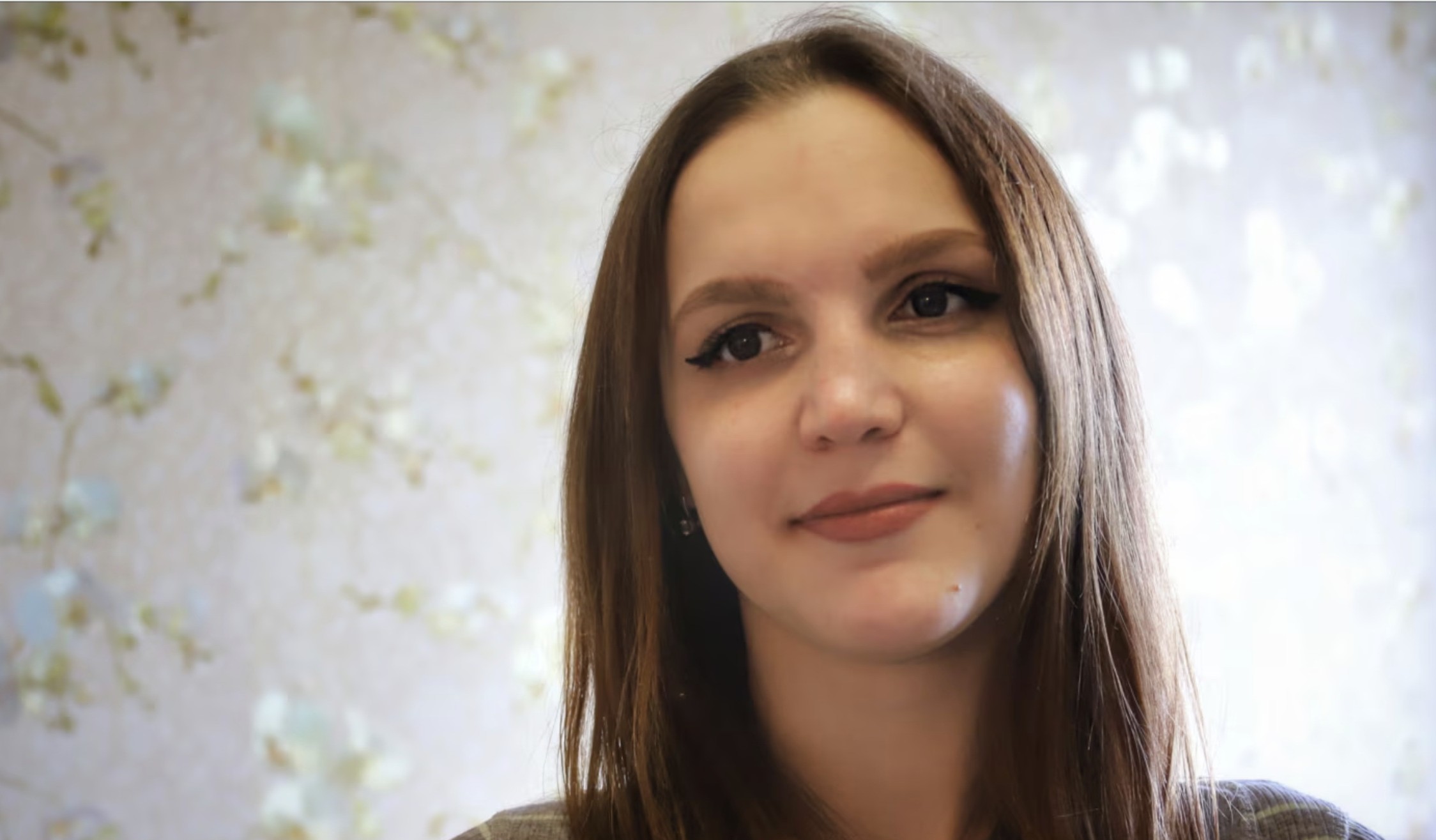Russian court sentences young Crimean to 15 years for fictitious 'planned terrorist attack’

A Russian court notorious for passing huge sentences against Ukrainian political prisoners has sentenced 26-yearold Alina Grek from occupied Simferopol to 15 years in a medium-security prison colony. Russia’s persecution of the young woman dates from 2021, when she was imprisoned for five days over a video posted in 2014, when she was just 15. There seem no grounds for finding the charges used to bring this new, 15-year, sentence any more convincing.
Alina Grek (b. 1 May 1999) was seized on 22 January 2024 and has almost certainly been held in captivity ever since. The indictment was only passed to the Southern District Military Court in Rostov in early December 2024, with it quite likely that, prior to this, she had been held incommunicado without formal status, and without independent legal assistance.
The charges are essentially unverifiable, and suspiciously similar to countless others brought against Crimeans since Russia began its full-scale invasion of Ukraine. She was accused and found ‘guilty’ of ‘state treason’ under Article 275 of Russia’s criminal code; ‘undergoing training in terrorist activities’ (Article 205.3) and ‘planning an act of terrorism’ (Article 205 § 1).
The prosecution claimed that Grek had, in September 2023, contacted Ukraine’s Military Intelligence and stated that she wished to work for them “on a confidential basis for money”. She had, purportedly, bought components to make Molotov cocktails and photographed a railway relay cabinet in the Simferopol area. It was claimed that, in January 2024, near a village in the Simferopol region, she had, on instructions from Ukraine’s Military Intelligence, let off a previously prepared Molotov cocktail and sent a video of this to her ‘fixer’ at Military Intelligence.
Were there any truth to these claims, such a trial run would merely have increased the likelihood of her being caught, yet it is claimed that the ‘fixer’ gave his approval and sent new instructions. This time she was supposed to use a Molotov cocktail to supposedly set fire to a railway relay cabinet in the Simferopol area.
Russia’s FSB has been claiming to have ‘thwarted acts of sabotage’ since 2014, with videos invariably posted of allegedly great stashes of explosives, weapons, etc. found. The railway in occupied Crimea, as well as in Russia and Belarus, has been widely used in Russia’s war of aggression against Ukraine and would, certainly, be a legitimate target. It is less clear why a Molotov cocktail would be deemed adequate for the task, and why Military Intelligence would go for a dress rehearsal.
The claim that Grek had wanted to help Ukraine’s Military Intelligence for money is fairly standard, with the FSB not wanting to admit that Ukrainians on occupied territory oppose Russian occupation and wish to help in the defence of their own country.
Russia’s FSB has, since 2014, generated a number of such ‘trials’, based on unprovable allegations of ‘thwarted acts of sabotage’, with occupation ‘courts’ knowing not to ask awkward questions.
The situation has changed now only in that the charges have become much more serious, with ‘ treason’ charges not only making the sentences longer, but also enabling the ‘courts’ to hold all proceedings behind closed doors.
A 15-year sentence was passed on 14 August 2025 by ‘judge’ Pavel Yurievich Gubarev from the Southern District Military Court in Rostov. There had been a fair number of hearings, so it is likely that Alina resisted the inevitable pressure to ‘confess and will probably appeal.
As mentioned, doubts about this prosecution are only exacerbated by the fact that Grek was seized almost three years to the day after she and her husband, together with some other students, were detained during a day of protests in support of Russian politician and political prisoner Alexei Navalny. She later stated, in an interview to Crimean Realities, that she and Yevhen had come out in protest not in support of Navalny, but to show their opposition to the regime and Russian leader Vladimir Putin. It was from then, she added, that the persecution had begun.
On 21 April 2021, there was another meeting which neither Alina, nor her husband, took part in. This, however, did not stop the FSB from seizing Alina. She was then jailed for five days by occupation ‘judge’ Yury Gurevich because the so-called ‘Centre for countering extremism’ managed to find a social media video, dated 2014, which has been added to Russia’s long ‘list of extremist materials’. The claim was that the video remained on open access, though it seems most unlikely that Alina, who would have been 15 when she posted it, even remembered it.
Shortly after this, she told Crimean Realities that she planned to apply to the European Court of Human Rights over her seizure on the day of protests and her subsequent imprisonment





